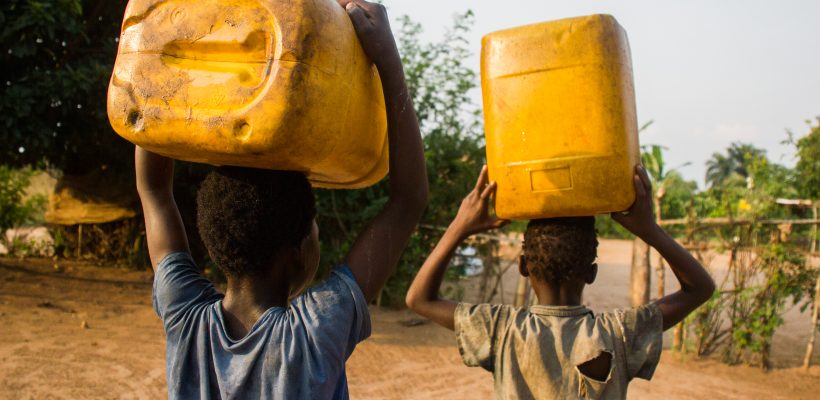The Democratic Republic of Congo (DRC) is one of the most water-rich countries in the world, containing 52% of the African continent’s freshwater resources. Despite this enormous availability of freshwater, only 32% of the rural population has access to potable water (DHS 2014). This, coupled with poor hygiene and sanitation practices, creates an environment where children are at high risk of waterborne diarrheal diseases; an estimated 17% of deaths in children under five are due to these types of illnesses.
In order to combat the high prevalence of waterborne illness, IMA World Health recently piloted a new strategy coined the Hybrid Model in order to achieve more rapid and sustainable results. This program builds on the Healthy Villages, Healthy Schools program that IMA has already implemented in partnership with the government of DRC. The Healthy Villages, Healthy Schools program uses community volunteers trained in many types of WASH interventions such as the construction of sanitized latrines and the importance of hand washing before eating and after using the toilet. With this knowledge, the community volunteers take to the village to teach their community how to keep their villages clean and prevent water-borne illnesses.

Kapinga Eudoxie washes her hands after using her sanitized latrine in the village of Nsanga-Nyembwe. (IMA World Health/Crystal Stafford)

Malenga Gustave, a community volunteer in the village of Nsanga-Nyembwe, and Clement Muyaya, community health worker in Katoka Health Zone, pose next to their new and improved water source. The water from this source tested free of bacteria. (IMA World Health/Crystal Stafford)
With the introduction of the Hybrid Model, IMA World Health has provided two technological innovations that will improve availability and quality of water at the household level: cisterns and LifeStraw filtration systems. So far, 76 cisterns, each with a capacity to hold 12,000 liters of water, have been constructed in public spaces like health centers, hospitals, and schools. These cisterns will provide water seasonally to an estimated 36,000 people.
In order to ensure that collected water is safe to drink, LifeStraw filtration systems are being sold at health centers for a small fee of $31 for a 6-liter household system or $180 for a 25-liter community system. The LifeStraw systems can be purchased either with cash or credit and will provide 3-5 years of clean water.
In addition to the technological interventions, this model aims to empower the recipient communities to better participate in and take advantage of the interventions of the Healthy Villages, Healthy Schools program.

IMA volunteer, Woody Collins, demonstrates how to use a Family Sized LifeStraw water filter to a recipient. (IMA World Health/Crystal Stafford)
Since July 2015, the program has declared 12 villages and two schools Healthy under the Hybrid Model program. It is anticipated that 30 more villages will be declared Healthy by the end of September.The village of Nsanga-Nyembwe was the first village to be certified under the program. Villagers like Kapinga Eudoxie (pictured above) now have clean latrines and good hygiene practices thanks to the IMA’s WASH interventions.
The Projet d’Accès aux Soins de Santé Primaire, or the Access to Primary Health Care Project (ASSP) is a 5-year, £182.9 million (US $304.5 million) project funded by the department for International development (DFID) through UK Aid and the Swedish International Development Cooperation Agency (Sida). The ASSP project seeks to improve primary health care in 56 health zones in five provinces of the Democratic Republic of Congo – Kasaï Occidental, Maniema, Equateur, Oriental and South Kivu – for a population of 8.3 million people. IMA World Health leads the consortium of implementing partners including SANRU, CARITAS, World Vision and IRC, with technical assistance from Tulane University (in collaboration with the University Of Kinshasa School Of Public Health), Pathfinder, HISP, and IntraHealth.



Recent Comments